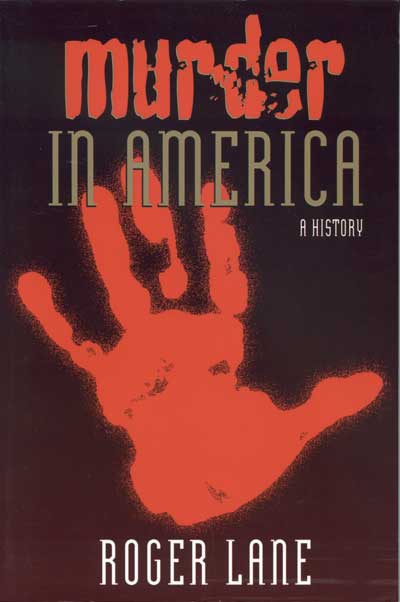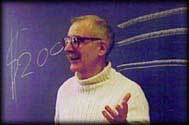Named by the Knight-Rider chain as one of the top ten books in Contemporary Affairs for the year 1997

Murder in America
A History
Roger Lane
 “The best scholarly book on the history of murder in the United States.” —Lawrence
Fleischer, The New York Law Journal
“The best scholarly book on the history of murder in the United States.” —Lawrence
Fleischer, The New York Law Journal
“Only a historian of Lane’s caliber could write a book like Murder in America with such comprehension of the social scene within which our murder rate has been so high. . . . Murder in America is a book for everyone: specialists in criminology, the police, criminal lawyers, historians, the lay public in general. As a longtime student of homicide studies, I am pleased to give high praise for the clarity, the thoroughness, and the writing style of Murder in America.” —Marvin Wolfgang, The Philadelphia Inquirer.
“Lane attempts an ambitious overview encompassing medieval England, the 1622 massacre at a Virginia settlement, and familiar and unfamiliar murders up to the 1990s. The story of homicide is set inside the wider history of American violence: riots, lynchings, assassinations, revolutionary political groups, and the turmoil of the ‘60s. Lane examines degrees of punishment, the effectiveness of the justice system, advances in forensic science and compares legal theory with practice.” —Publisher’s Weekly.
“A vivid portrait of the long history of American homicide, thoroughly researched and of interest to both the academic and general reader.” —Kirkus
Homicide has always fascinated us. In an age of terrorism, serial killings, and drive-by shootings, the topic of murder frightens Americans, influencing much of our politics, our choices of where to live and work, and the relations among our races and classes. Historically, it is central to the biblical account of human genesis, to the great epics of peoples around the globe, to Oedipus, Hamlet, and Macbeth. But historians have only begun to investigate it. This book is the first serious study of the history of criminal homicide in America, reaching from precolonial times to the age of the O. J. Simpson trial.
Noted historian Roger Lanes provides this much-needed overview of the history of murder and our culture’s responses to it. Lane demonstrates that the study of murder can provide important clues about the way society actually works, its fears and tensions, its concept of justice, and the value it places on different kinds of human life.
Lane’s investigation of the history of murder is itself a kind of detective work. Historians, like detectives, must reconstruct some past event or events as accurately as possible, making a convincing narrative from whatever clues remain: the accounts of witnesses, official documents, physical remains, private papers. This history uses such evidence to examine both individual cases and broader trends. It shows who, typically, did what to whom and how often in such places as medieval England, Puritan Massachusetts, the slave South, and the Western frontier and in such times as the industrial era and the turbulent 1960s, outlining the likely consequences in each period. By the time Lane reaches the contemporary United States, he has explained much about why postindustrial America has by far the highest murder rate in the developed world.
Roger Lane simply asks the same questions of the past that we ask of the present: What causes murder rates to go up or down? How efficiently or fairly has the justice system worked in dealing with homicide? What are or have been the roles of economic difference and family structure, of the courts and the media, of the Wild West and the urban Industrial Revolution, of Indian warfare and African-American slavery? But if the questions are familiar, Lane shows us that the answers cannot be fitted neatly into boxes we now label either “liberal” or “conservative.” They will surprise most readers.
Roger Lane is Research Professor of Social
Sciences at Haverford College. As social and cultural historian, he has won the
prestigious Bancroft Award from the Trustees of Columbia University, (1987), and
the Best Book Award from the Urban History Association, (1992). His major
publications have involved the study of police, crime, and violence, urban and
ethnic history. Named by the Philadelphia Inquirer as one of the top ten
teaching professors in the Philadelphia metropolitan area, at Haverford College
he has won the Lindback Teaching Award and the Students’s Association Award for
Community Service.
| 1997 Criminology
416 pp. 6 x 9 11 photographs |
|
| $26.95 paper 978-0-8142-0733-8 | Add paperback to shopping cart |
| History of Crime and Criminal Justice |


